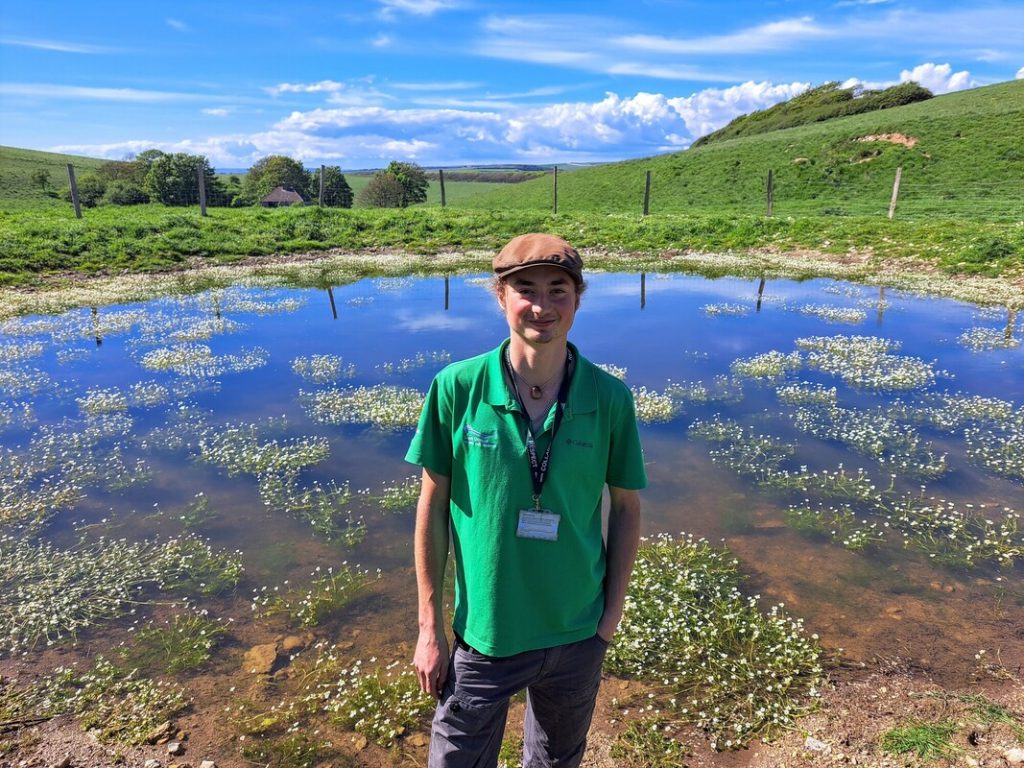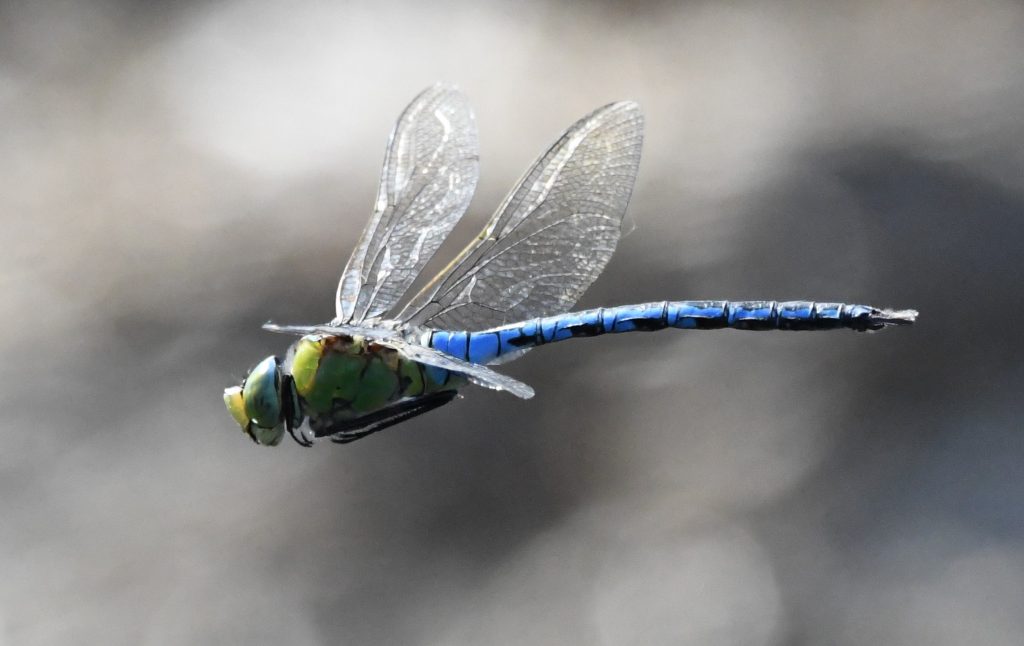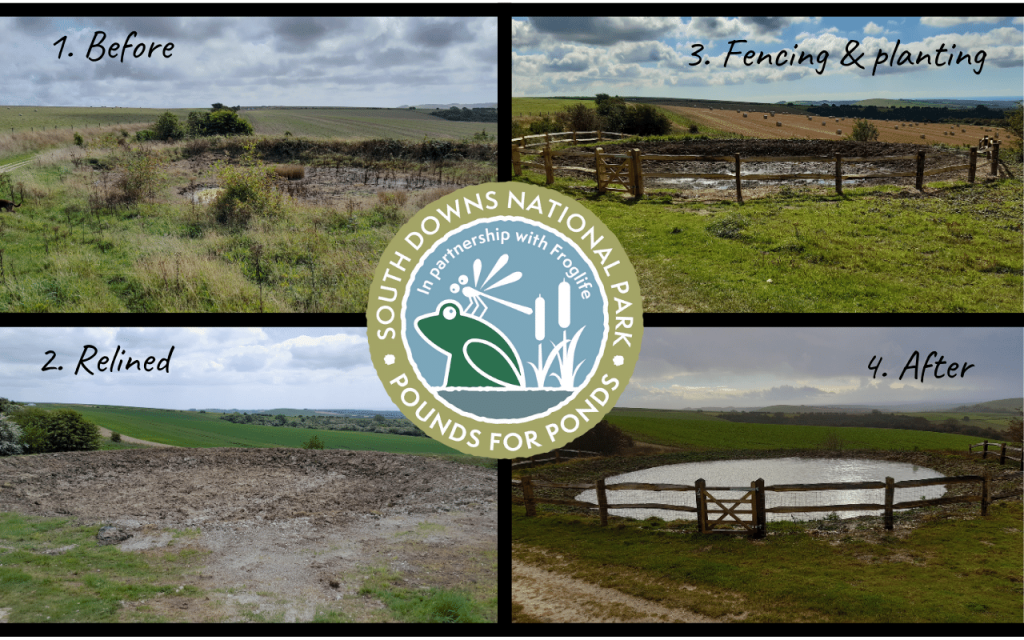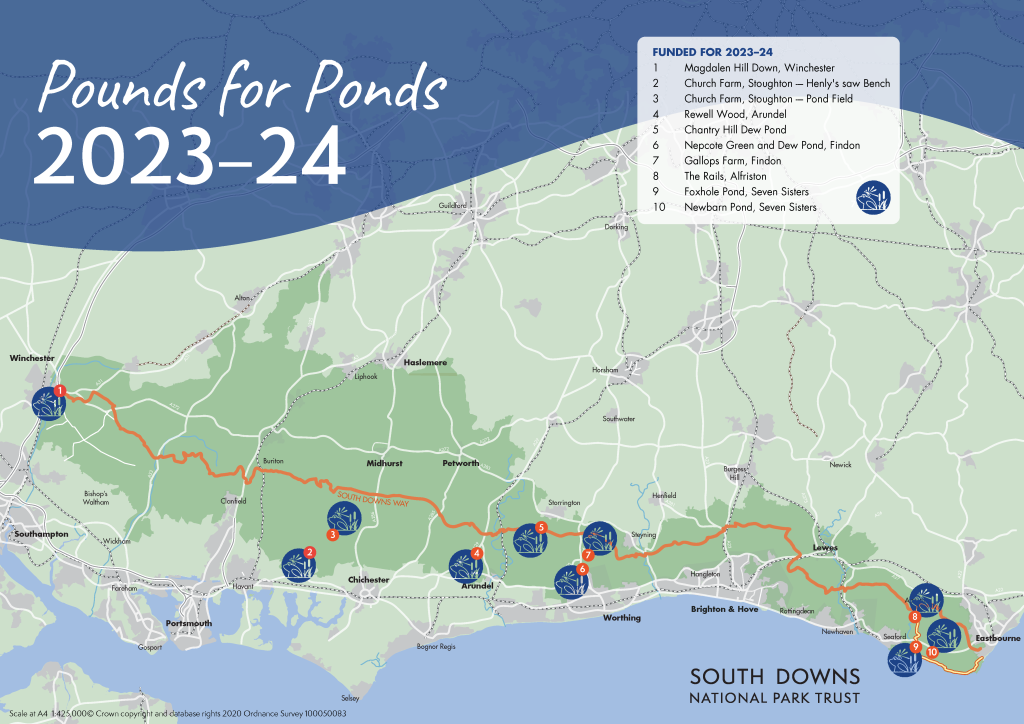Eight derelict dew ponds have been lovingly restored and are now thriving with new life, thanks to funding of over £90,000 from the South Downs National Park Trust.
After years of stagnation and dwindling water levels due to climate change, eight dew ponds across Sussex and Hampshire are once again providing a haven for scores of fauna and flora, including dragonflies, toads, frogs, pond skaters, water boatmen, yellowhammer, gypsywort and meadowsweet.
Below: National Park Ranger Lawrence Leather next to the restored Newbarn Pond at Seven Sisters, East Sussex (credit SDNPA)

Work is due to start soon on restoring a further two ponds, near Emsworth, that will help support populations of turtle dove.
The turnaround has been made possible by the “Pounds for Ponds” initiative, which is looking to restore around 100 dew ponds across the South Downs National Park and was launched exactly one year ago.
Dew ponds are synonymous with the chalk grassland of the South Downs, historically being dug by farmers as a watering hole for livestock and some dating back several hundred years.
However, over many decades and due to changes in farming practices, dozens of these wildlife oases have fallen into disrepair or been lost completely. Climate change, with warmer, drier summers, has compounded the problem, meaning these bodies of water are more important than ever in providing refuge and drinking water for animals.
Jan Knowlson, Biodiversity Officer for the National Park, said: “
Seeing these restored dew ponds springing back to life is absolutely amazing and just shows how nature can flourish if given the chance. There actually used to be around 1,000 dew ponds across the South Downs landscape, but this number has fallen dramatically over the past century.”

Restoring these bodies of water is a really good way of tackling biodiversity loss because these ponds support almost three quarters of all freshwater species found in lowland landscapes like the South Downs.
I’d like to thank everyone who has donated to make these restorations possible and we’re excited to be able to restore even more in the future. Pounds for Ponds is just one strand of the National Park’s ongoing ReNature initiative and a concerted effort over the past three years has seen huge amounts of new habitat being created including woodlands, hedgerows, wetlands and wildflower meadows.
Jan Knowlson, Biodiversity Officer for the South Downs National Park
One of the dew ponds that has been restored is at Chantry Hill, West Sussex (see the progress images below). Lead Ranger Tom Garriock recently visited the dew pond and said: “The pond is looking great! It has filled up nicely over the winter and is already providing a haven for wildlife.”

“I’ve seen invertebrates such as whirligig beetles, pond skaters and water spiders on the surface of the pond, as well as farmland birds including yellowhammer and meadow pipit coming to drink. Skylark, kestrel, red kite and buzzard were much in evidence in the vicinity, and of course, the ever-curious robin!”
Tom Garriock, Lead Ranger, South Downs National Park
A dew pond at Magdalen Hill Down, near Winchester, has also been given a makeover, thanks to a grant of £13,000 to Butterfly Conservation.
Fiona Scully, from Butterfly Conservation, said: “There are already water boatmen and pond skaters whizzing about, and birds are drinking from it. It’s a lovely feature for the reserve and hugely beneficial for both wildlife and visitors.”
The map below shows the 10 sites that have been funded in 2023-24. Work is due to start soon on restoring the last two ponds at Church Farm, Stoughton, near Emsworth.

Over the past year alone, Pounds for Ponds has raised £200,000, meaning that more dew ponds can be restored in future funding rounds. Funding support has come from National Lottery Heritage Fund, Bannister Trust, BMW UK, Swire Charitable Trust, together with scores of donations from individuals. Because restoring dew ponds is expensive, the South Downs National Park Trust needs to raise an estimated £1m in total to restore 100 dew ponds.
The pond restorations have been supported with practical and ecological advice from Froglife, as well as National Park ranger teams.
To be notified of future rounds of funding, please email Miriam Swan, Grants Officer.
